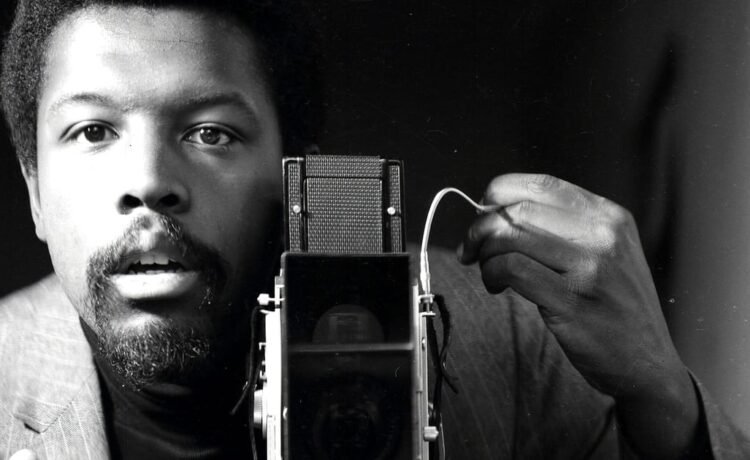
It was the Brooklyn-born, Bronx-raised, and Harlem-championing photojournalist Kwame Brathwaite who came to popularise the phrase “Black is Beautiful,” which grew into the cultural movement that would unapologetically embrace and celebrate Blackness, especially honouring the beauty of darker-skinned individuals. Originally born Gilbert Ronald Brathwaite, the photographer later chose to rename himself ‘Kwame’ in honour of Kwame Nkrumah, the first Prime Minister and President of Ghana after its liberation from British colonial rule.
Men often don’t get their flowers until their death, though this statement proves itself most true in the case of Black men, and in the case of the African-American photographer who would only enjoy the success of his work a few years before his death, it is true to an extent. The fact that Kwame would keep his collection of photographs mostly private for many years was not only a political statement; it was also a way for him to control how his work was shared and understood.
Get more Little White Lies
South-London based documentary filmmaker Yemi Bamiro has beautifully risen to the task of sharing Kwame’s art with the world. His newest documentary, Black Is Beautiful: The Kwame Brathwaite Story had its world première at the 69th edition of the BFI London Film Festival, where we had the chance to discuss the making of his passion project. “The real challenge was how to fit a life that rich, those stories and eras, into a single, coherent film,” Bamiro says.
Bamiro has always shown a fascination with community and grassroots in his work. He first found out about Kwame’s work in 2021, when a friend of his bought him the titular archival book by Tanisha C. Ford. “One of the producers, Lizzie Gillette, messaged me in August 2023 and wanted to talk about the project,” he explains. The ball quickly started rolling after a plane trip to visit his family in Pasadena, California provided him the opportunity to check out the archive.
“I always felt this sense of privilege,” Bamiro says about getting to make this documentary. “It never felt like work: going to Harlem, meeting the family, living in the archive. It was so rewarding that I would’ve done it for little to no pay.” Though Bamiro humbly refers to himself as the custodian of the story, history may remember him as an essential part of it.
Kwame took over half a million photos throughout his life, and the family has only gone through about 10 percent of his archive. “They’re still discovering new material every day: handwritten poems to Bob Marley, unseen shots of Marvin Gaye and Stevie Wonder,” Bamiro says, describing it as a true “treasure trove.” But wading through the gigantic archive wasn’t the most challenging part for making the film. Rather, it was the score. “There’s a traditional way to score [this type of] documentary: lots of strings, sad music, but we wanted to do something different,” he says. “Our two composers, Kwes and Marley Ren, worked together on a beautiful fusion that intermixed their respective traditional and modern styles.”
Despite apprehension from audiences during test screenings, Bamiro advocated to use contemporary female artists like FKA Twigs on the soundtrack. “I came to the edit one day and [editor] Otto [Burnham] had included the song Two Weeks [by FKA Twigs] and I couldn’t unhear it,” he recalls. “When we did some test screenings, people weren’t sure about it, because it’s too contemporary. But we were like, ‘Nah, man, it just works so well.’”
Bamiro wouldn’t have been able to make a project like this if he didn’t stand his ground. He didn’t feel challenged working with a posthumous subject, thanks to the help of Kwame’s children and wife. “I’ve always seen it as a love story between Kwame and his wife, Sikolo; the sacrifices she made so he could do his work, her selflessness, her role as his muse and the mother of his children,” he says. “She was the foundation of everything; without her, none of it would have been possible.”








Recent Comments